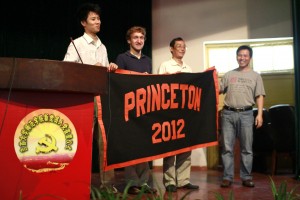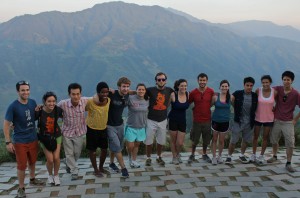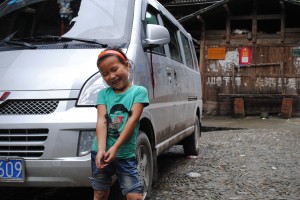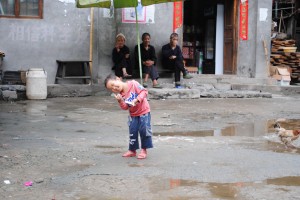One of the favorite expressions of Princeton economics professor Harvey Rosen is: “There’s no such thing as a free lunch.” While I understand the economic thinking behind this statement (Am I sacrificing utility in eating what is given to me? What about the time spent eating—could I be gaining something more valuable with it?), the cheap college student in me things that any meal given gratis is nothing to sneeze at.
And so it was that on day one of Jishou, after presenting the wonderful cook at Asian Jack Black (a.k.a. “the black dirty place”, “the greasy spoon”) with a Hoagie Haven t-shirt and proclaiming our—and Will Schleier’s, SoS ’11—appreciation for her food, the cook responded by not letting Eliot and me pay for our lunch. I never felt more honored to have been denied a 6 kuai (>$1) expenditure.
Thus began the gradual realization that people in Jishou actually remember the strange foreigners who tramp across their town, eating up street food, bargaining for the more oddly worded t-shirts, and working out in their rooftop gym. A fried rice lady waves at me as I walk past, a street vendor flashes a grin—it’s all there. I even manage to spot an ad for a calligraphy studio with the smiling face of Katelyn Scanlan, SoS ’11, smiling back at me.
The initial reaction for all of this is: “Oh my gosh, we Westerners are so different! We’re so special! They remember us even a year later! They even use us in their ads.”
But then another reality sinks in: “Wow. They’re watching us, and they’re noticing everything we’re doing. Carp.”
This realization has certainly colored my second round in Jishou. While last year I both enjoyed and felt self-conscious about being stared at, this year I am slightly more aware of being but one of many in a parade of foreigners who come to Jishou each summer. We are both what we do in the present, and also what those who came before for us did in the past. That, I think, has come to redefine what SoS is for me. Once an unforgettable summer, it is morphing into a narrative of summers that are inextricably linked by the common experience of placing well-wishing Princetonians in rural China.
This definition will also continue to change. Probably.
– Cameron





You must be logged in to post a comment.